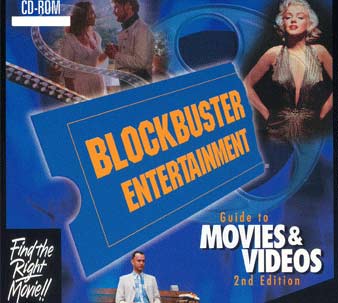 Reader question: Why is a hit movie described as a “blockbuster”?
Reader question: Why is a hit movie described as a “blockbuster”?
My comments: Yes, these days blockbuster refers mostly to a popular Hollywood movie, especially one that does well at the box office, breaking records, for example, in terms of ticket sales.
Blockbuster, though, used to be a name of a bomb used in World War II. It was so powerful that people say one such bomb could destroy a whole block of a city – a block, of course, being any neighborhood of buildings bounded by four streets.
Bust means break, hence buster could mean a bomber, which busts (breaks) up, i.e. explodes.

It is from this that the Hollywood expression is generally believed to have derived. It is as though to say that a movie is so popular that the whole neighborhood is shaken by it or in other words all residents feel its force and effect. Simply put, folks watch it.
I said blockbuster movies usually refer to Hollywood films. That’s because, well, all movies that have performed well at the box office (the place where tickets are sold) are Hollywood movies. It sure looks like it. For one thing, it’s costly to make a movie, and Hollywood has the money others don’t have in making big-budget movies. The Star Wars movies were blockbusters in the United States. E.T. was another. Titanic, obviously was a blockbuster worldwide. All of these took tens, hundreds of millions bucks to make.
Hollywood aside, “blockbuster” can also be used to describe a big business deal, presumably in the same sense, that it’s big enough to affect the industry as a whole. The merger of CBS and Viacom back in 2001, for example, was considered a blockbuster. Valued at $34 billion, it remains to this day one of the biggest mergers in the media industry.
In sports, major trades (wherein clubs exchange players with one another) are also called blockbuster deals. For example, if Yao Ming would one day be traded by the Houston Rockets, the deal would be a blockbuster. That is to say, the whole league would be shaken by it, which is also why this probably would never happen. Hypothetically speaking, though, if it did happen, you’d be able to hear it immediately – or it wouldn’t be called a blockbuster at all.
That’ll be all for today.
Oh, one more thing. Since we have been making the bombing analogy, I’m compelled to add that even though it’s ok to call hit movies blockbusters, it’s not ok to call them busts or bombs. They’re not the same thing. In fact, they’re exactly opposite in meaning. A film that is described as a “bust”, or one that “bombs” at the box office is one that fails badly.
Such is the irony of the English language.
本文仅代表作者本人观点,与本网立场无关。欢迎大家讨论学术问题,尊重他人,禁止人身攻击和发布一切违反国家现行法律法规的内容。
About the author:
Zhang Xin is Trainer at chinadaily.com.cn. He has been with China Daily since 1988, when he graduated from Beijing Foreign Studies University. Write him at: zhangxin@chinadaily.com.cn, or raise a question for potential use in a future column.
相关阅读:
